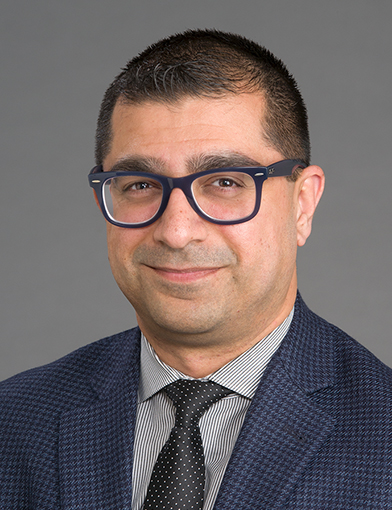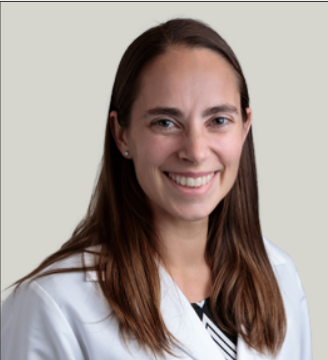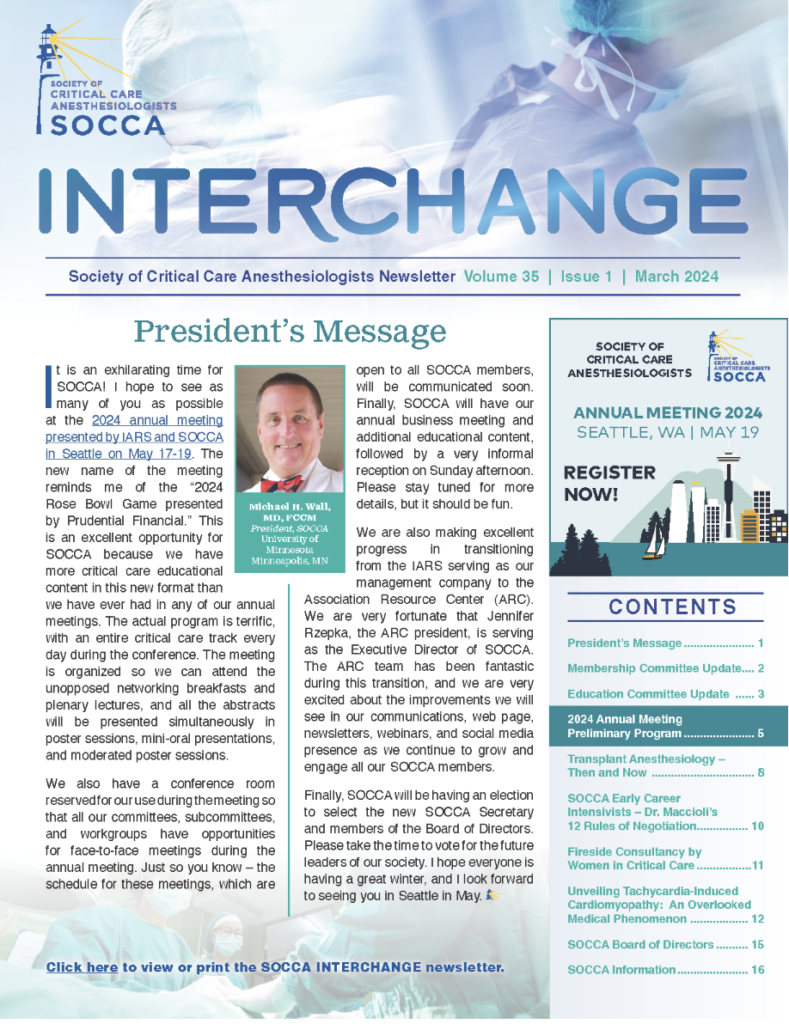Committee On Education Update
On behalf of the SOCCA Education Committee, we would like to extend our thanks to our new members. It is heartwarming to see such an overwhelming enthusiasm to advance the educational mission of SOCCA. As SOCCA membership grows, the Education Committee has realigned its structure to create working groups, dedicated to meeting the education needs of our SOCCA members and the anesthesiology critical care community at large. The last few months have been a testing time for any practicing intensivist in the United States. We have been working overtime fighting the delta COVID sweeping through the country. Despite this, the SOCCA Education Committee aptly supported by the rest of the SOCCA membership has continued to produce remarkable new critical care education content. We are deeply appreciative and truly admire each of you as you deal with this once in a lifetime ‘ICU pandemic.' Our update highlights our working groups that have been extremely busy in developing diverse educational content and adapting to the ever-changing landscape imposed by the COVID-19 pandemic.
- Journal Articles Selection and Enduring Content/Videos: This group is entrusted with creating CME activities from multiple sources. They identify articles of particular importance to intensivists from a myriad of anesthesiology and high impact critical care journals and provide content-based CME activity to SOCCA members. In addition, this subcommittee curates CME activities from the 2021 SOCCA annual meeting’s virtual content.
- Monthly Webinar Content and CME: In response to increasing opportunities for virtual education, this subcommittee developed nearly a dozen webinars over the past year averaging over 100 registrants per month. These webinars were able to reach current SOCCA members as well as provide outreach to the 25% of attendees who were not current members at the time of registration. Webinars featured highly impactful topics such as non-respiratory manifestations of COVID-19, value care for patients, gender and race disparities in critical care medicine, management of critically ill parturients, and evolving cardiac critical care. Given the success of this webinar series, quarterly webinars will continue, and content planning has already begun thanks to the submissions of numerous, high-quality proposals from SOCCA members.
- Board review course: The first annual SOCCA board review course was held virtually last year and was an overwhelming success with over 180 registered participants. The SOCCA board review course consists of concise presentations of high yield topics by those with recent experience with the critical care written boards. This year, the 2021 SOCCA board review course provided virtual meetings over the course of 4 weeks in September with over 320 intensivists and critical care fellows registered to attend and many hours of board review content presented in short lecture format.
- Annual meeting planning: The program planning group for the SOCCA annual meeting has been working diligently to create an educational program for our 2022 meeting. SOCCA members have proposed a record number of outstanding sessions. While we are unsure whether we will be able to all gather in-person in Hawaii in March, we plan to curate a meeting that is inclusive, diverse and provides an enriching experience to all attendees whether in person or joining virtually.
Along with their involvement with the various working groups within the Education Committee, the members from the committee have also been involved with various collaborations with other SOCCA committees. The SOCCA task force on the ‘physiologically difficult airway’ is being co-chaired by Dr. Karamchandani from the education committee and Dr. Jabaley from the Communications Committee. The task force includes members from across the world and is tasked with performing a systematic review, making clinical recommendations based on the findings, as well as determining gaps in knowledge for future scholarship. Various members of this task force are also involved with writing review articles for a special edition of the Current Opinion in Anesthesiology on emergency airway management in the non-operating room setting.
Similarly, several members of the education committee have been asked to contribute to a special edition of the International Anesthesiology Clinics in collaboration with other SOCCA committee members. Education Committee members will be contributing to topics including diagnosis and management of shock states, management of intraoperative cardiac arrest, and perioperative fluid management.
Thanks to the abundant and exceptional contributions from all the members of the Educational Committee, we can assure another excellent year of critical care education for SOCCA and its members.






































